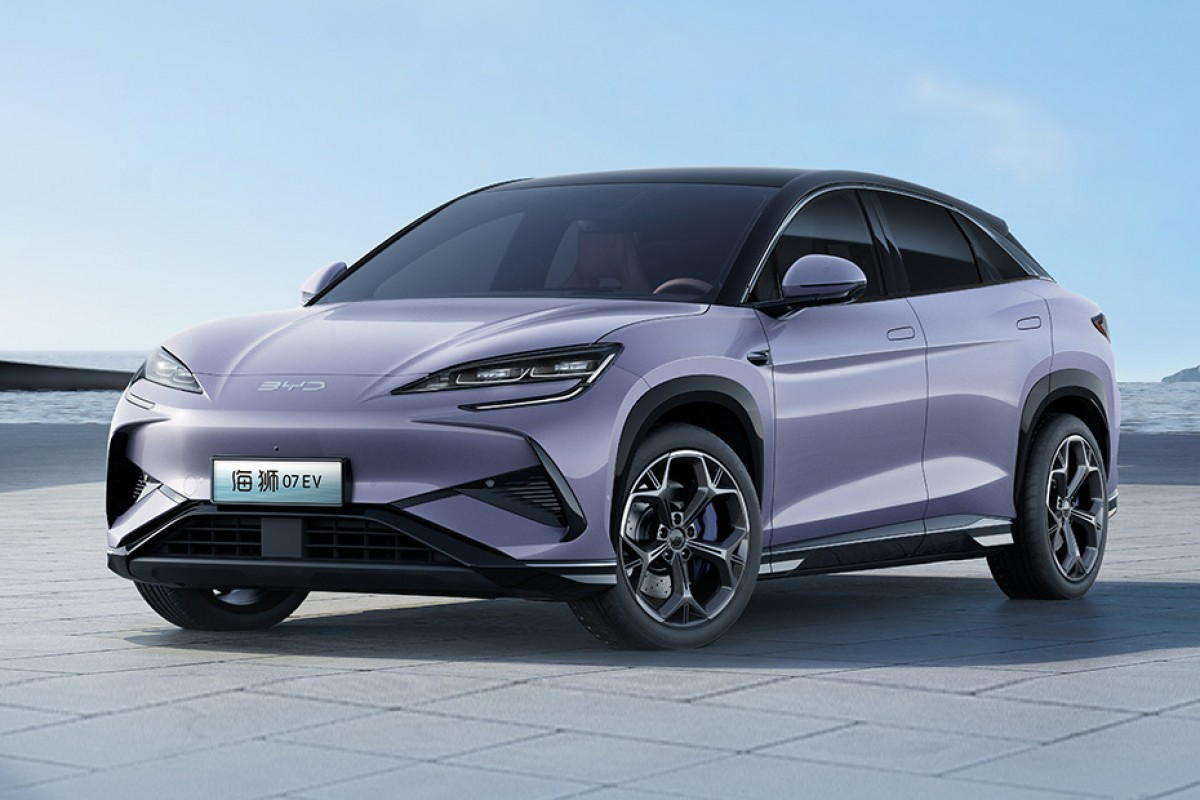China’s BYD Signs $1bn Deal For Factory In Turkey

BYD, China’s largest electric vehicle (EV) maker, is to setup a manufacturing plant in Turkey, as EU tariff talks falter
The scramble by Chinese EV makers to avoid punishing tariffs in the European Union and the United States continues.
It has been announced that China-based BYD, one of the world’s largest manufacturers of electric vehicles (EVs), has signed a deal to build a factory in Turkey and will invest approximately $1 billion in the plant.
The move is in response to recent tariffs in the European Union and United States against Chinese EV makers, who allegedly benefited from unfair support from Beijing.
The tariffs are designed to prevent Chinese EV makers flooding Europe and the US with cheap Chinese cars, as well as protecting domestic car and EV makers.

BYD factory
According to the Turkish state news agency Anadolu, the BYD plant in Turkey is expected to produce 150,000 electric and hybrid vehicles annually, and will include a research and development centre.
This plant will be strategically important to BYD, as Turkey is in a customs union with the EU. That means vehicles can be exported from the country to the European Union tariff-free.
BYD is apparently expecting the new factory to begin production at the end of 2026 and it should create 5,000 jobs directly in the country.
On Monday, the parties had signed the deal in a ceremony attended by President Recep Tayyip Erdogan, Industry and Technology Minister Mehmet Fatih Kacir, and BYD Chairman and CEO Wang Chuanfu.
Erdogan also met with a BYD delegation in Istanbul.
On Monday, Turkey also implemented an additional 40 percent tax for imported vehicles from China to boost domestic production’s share of the Turkish market and encourage investments.
SWM, another Chinese car maker, also announced it was applying to build a factory in Turkey.
Turkey is currently the third largest car manufacturer in Europe.
Tariff busting
The move by Chinese firms comes after the EU had announced in June it was planning to institute higher EV tariffs of up to 37.6 percent on Chinese EV imports while it completes its investigation into allegedly excessive and unfair subsidies.
This was to be on top of a 10 percent duty that was already in place for all electric cars imported from China.
The EU implemented the following individual duties on three Chinese EV makers, based on estimates of how much state aid each firm received from Beijing:
- BYD: 17.4 percent;
- Geely: 20 percent;
- SAIC: 37.6 percent.
The EU tariffs came into force last week, after the two sides failed to reach an agreement on what the EU executive labelled as “unfair” subsidies from Beijing.
Meanwhile the Biden Administration and the US Commerce Department in May had announced new tariffs of up to 100 percent on a number of Chinese goods, including EVs, which they said were designed “to protect American workers and businesses from China’s unfair trade practices.”
The American tariffs are expected to kick in sometime in August 2024.
BYD is the world’s second-largest EV company after Elon Musk’s Tesla, and has been rapidly expanding its production facilities outside China.
At the end of last year, BYD announced that it would build a manufacturing plant in Hungary, which will be its first passenger car factory in Europe.
On Thursday, BYD also opened an EV plant in Thailand – its first factory in South East Asia, and is also reportedly planning to build a manufacturing plant in Mexico.